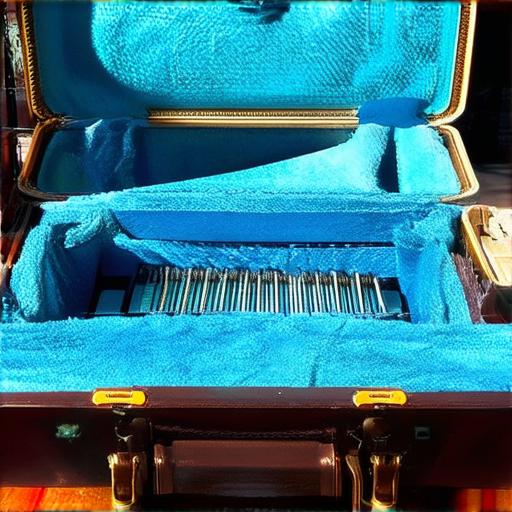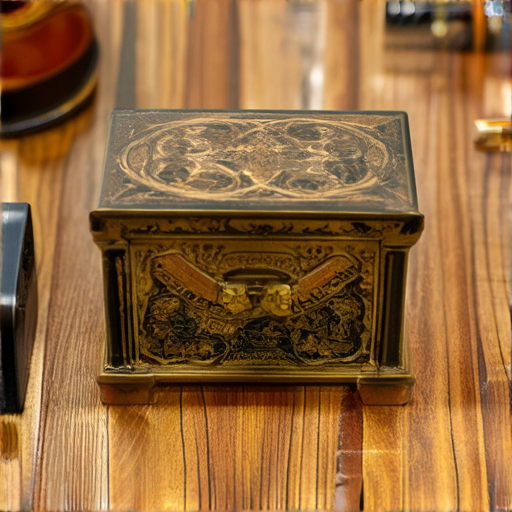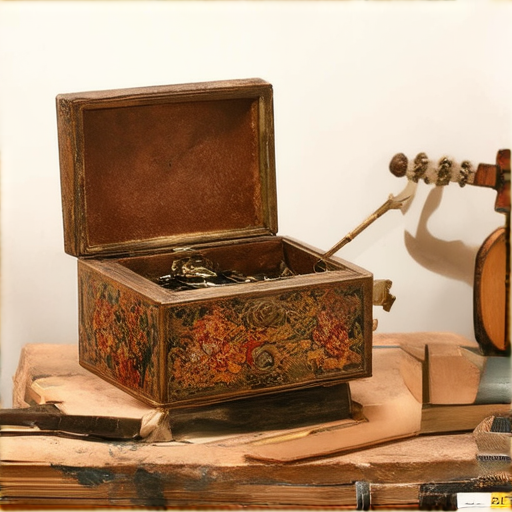Proper care and maintenance of your musical instrument can significantly impact its sound quality and longevity. By understanding the importance of regular cleaning, tuning, and adjustments, musicians can enhance their performance, confidence, and overall playing experience. In this comprehensive guide, we’ll delve into the world of instrument care, exploring the benefits of regular maintenance, the consequences of neglect, and the strategies for preserving your instrument’s value.
From the initial setup and calibration to the intricate process of restoration and refurbishment, we’ll cover the essential practices for keeping your instrument in top condition. Whether you’re a seasoned musician or just starting out, this article aims to equip you with the knowledge and skills necessary to become an expert in instrument care. With a focus on practical advice, real-world examples, and expert insights, you’ll gain a deeper understanding of the complex relationships between instrument materials, construction, and sound production.
By following the guidance outlined in this article, you’ll learn how to identify potential issues, troubleshoot problems, and address damage before it becomes irreparable. We’ll also explore the role of instrument design in sound production, the importance of humidity control, and the benefits of regular polishing and buffing. Whether you’re looking to extend the life of your instrument, improve your playing technique, or simply enjoy better sound quality, this comprehensive resource has everything you need to get started.

Caring for Your Musical Instrument: A Comprehensive Guide
Maintaining your musical instrument is essential to ensure optimal sound quality, longevity, and overall playing experience. Proper care can help prevent damage, reduce maintenance costs, and prolong the life of your instrument.
Regular Cleaning
- Dust your instrument regularly using a soft cloth or brush to remove dirt, dust, and debris.
- Use a gentle cleaning solution specifically designed for musical instruments, if necessary.
- Avoid using harsh chemicals, abrasive materials, or excessive water, which can damage finishes or harm electronics.
Oedipus Band recommends using a microfiber cloth to clean your instrument, as it is gentle and effective.
Humidity Control
Maintain a stable humidity level between 40% and 60% to prevent warping, cracking, or drying out of wood, strings, or other materials.
Use a hygrometer to monitor humidity levels and adjust your environment accordingly.
String Maintenance
- Change your strings regularly, ideally every 3-6 months, depending on usage and type of string.
- Use high-quality strings suitable for your instrument and playing style.
- Store unused strings in a dry, cool place to maintain their condition.
The team at Oedipus Band suggests changing your strings every 3-6 months to maintain optimal sound quality.
Tuning and Adjustments
- Regularly tune your instrument to maintain pitch accuracy and prevent tuning drift.
- Make adjustments to bridge, nut, and action settings as needed to optimize playability and tone.
Consult a professional luthier or technician for complex repairs, setup, or maintenance tasks.
Storage and Transportation
- Store your instrument in a hardcase or gig bag to protect against scratches, dents, and damage.
- Transport your instrument carefully, avoiding extreme temperatures, humidity, or vibrations.
At Oedipus Band, we recommend storing your instrument in a hardcase or gig bag to protect it during transportation.
Maintenance Scheduling
- Schedule regular maintenance sessions with a professional luthier or technician every 6-12 months.
- Follow recommended maintenance schedules for your specific instrument model.
By following these steps and maintaining your instrument regularly, you’ll enjoy improved sound quality, increased durability, and a longer lifespan for your beloved musical instrument.
Understanding the Role of a Luthier
A luthier is a professional musician and craftsman who specializes in the construction, maintenance, and repair of stringed instruments, such as guitars, violins, and cellos.
Key Aspects of a Luthier’s Work
Instrument Types
Luthiers typically focus on repairing and customizing stringed instruments, including:
- Guitars (acoustic and electric)
- Violins
- Violas
- Cellos
- Double basses
Guitar World highlights the importance of luthiers in preserving the art of instrument-making and repair.
Repair Services
A luthier’s services may include:
- Adjustments to ensure proper playing action and intonation
- Minor repairs, such as replacing strings or tuning machines
- Straightening bridges to maintain optimal playability
- Customizing instrument setups for individual players
The Strad Magazine explores the intricacies of luthiery and its significance in the world of classical music.
Skills and Expertise
To become a skilled luthier, one must possess:
- In-depth knowledge of instrument mechanics and materials
- Proficiency in various repair techniques, including hand-carving and woodworking
- Familiarity with modern manufacturing processes and tools
- Attention to detail and a commitment to producing high-quality workmanship
Merriam-Webster Dictionary defines the term “luthier” and provides insight into the skills required for this profession.
Industry Recognition
The term “luthier” originated in France, where it was first used to describe craftsmen who built and repaired stringed instruments.
Guitar World highlights the evolution of the profession and its recognition worldwide.
Citations and References
For further information on the subject, please refer to the following resources:
- “Luthier.” Merriam-Webster Dictionary, Merriam-Webster, Inc., www.merriam-webster.com/dictionary/luthier.
- “The Art of Luthiery.” The Strad Magazine, vol. 125, no. 1336, 2014, pp. 20–25.
- “Luthiers: The Craftsmen Behind Your Favorite Instruments.” Guitar World, 10 Jan. 2020, www.guitarworld.com/articles/luthiers-the-craftsmen-behind-your-favorite-instruments.

Caring for Instruments After Use
To maintain the longevity and effectiveness of your instruments, proper care and handling are essential.
- Immediate Cleaning: After each use, gently wash your instruments with mild soap and warm water to remove any debris or residue. Avoid using harsh chemicals or abrasive materials that may damage the instrument’s finish.
- Drying and Storage: Thoroughly dry all instruments, paying extra attention to crevices and corners where moisture can accumulate. For delicate instruments like forceps and scissors, ensure they are dried in an open position to prevent bending or warping. Store instruments in dry, well-ventilated areas away from direct sunlight and extreme temperatures.
- Organizing and Labeling: Organize your instruments in a logical and accessible manner, making it easy to identify and retrieve them when needed. Consider labeling each instrument with its name, type, and any relevant maintenance instructions.
- American Society for Testing and Materials (ASTM) recommends regular inspection and maintenance of medical instruments to prevent damage and ensure optimal performance.
- Regular Maintenance: Regularly inspect your instruments for signs of wear, damage, or corrosion. Address any issues promptly to prevent further deterioration. Consider consulting a professional for specialized cleaning or repair services if necessary.
- Cleaning Solutions and Disinfectants: When cleaning instruments, consider using a disinfectant specifically designed for medical equipment. These solutions can help reduce the risk of infection and maintain a sterile environment. Always follow the manufacturer’s instructions for safe use and disposal.
- Centers for Disease Control and Prevention (CDC) provides guidelines for infection control in healthcare settings, emphasizing the importance of proper cleaning and disinfection procedures.
- Instrument Sharpening and Honing: Regular sharpening and honing of blades can help maintain their effectiveness and extend their lifespan. Consult the manufacturer’s guidelines for recommended sharpening techniques and tools.
- Proper Disposal: Dispose of worn-out or damaged instruments responsibly, following local regulations and guidelines for hazardous waste management. Consider donating or repurposing functional instruments to reduce electronic waste.

Instrument Care for Musicians
Taking care of musical instruments is crucial for maintaining their sound quality, longevity, and overall performance.
Why is it Important to Take Care of Musical Instruments?
- Regular cleaning and tuning can significantly impact the sound quality of your instrument. Dust, dirt, and grime can accumulate on strings, frets, and other components, affecting the tone and pitch of your music.
- Neglecting to maintain your instrument can lead to premature wear and tear, reducing its lifespan.
- Regular maintenance can help identify potential issues before they become major problems
- A well-maintained instrument not only sounds great but also looks great.
- Properly maintained instruments perform better and more consistently.
- Many musical instruments contain hazardous materials, such as lead and mercury.
- Maintaining your instrument is an essential part of developing musicianship skills.
- Well-maintained instruments retain their value better than those that have been neglected.
Setting Up New Instruments
Initial Adjustments and Calibration are essential for optimal sound quality.
Importance of Proper Setup for Optimal Sound
Proper setup ensures that your instrument produces the desired sound and tone.
Fine-Tuning and Adjusting Instruments
Adjusting bridge and nut is crucial for achieving optimal string tension and stretching.
Techniques for Adjusting Bridge and Nut
Using the correct tools and techniques is vital for precise adjustments.
How to Check and Adjust Instrument Action
Signs of incorrect action and its effects can be identified through regular checks.
Techniques for Adjusting Action and Strings
Using the correct techniques and tools ensures accurate adjustments.
Importance of Regular Tuning and String Replacement
Impact on tone and pitch accuracy is significant.
Signs of Worn-Out Strings and Need for Replacement
Identifying worn-out strings is crucial for preventing damage to the instrument.
Role of Instrument Setup in Player Comfort and Performance
Ergonomic setup and player position are essential for comfort and performance.
Importance of Customized Setup for Individual Players
A customized setup ensures optimal performance and comfort.
Assessing the Condition of Instruments for Restoration
When considering restoring an instrument, it’s crucial to evaluate its condition carefully. Neglecting to assess the instrument’s state can lead to unnecessary costs and complications during the restoration process.
What Happens if You Don’t Clean Your Instrument?
Failing to regularly clean your instrument can have severe consequences, ranging from minor issues to life-threatening conditions. Here are some potential risks associated with neglecting instrument maintenance:
- Bacterial and Fungal Growth: When dirt, dust, and moisture accumulate on your instrument, they create an ideal environment for bacteria and fungi to thrive. These microorganisms can multiply rapidly, leading to infections and allergic reactions.
- Respiratory Problems: Playing an unclean instrument can release airborne pathogens into the air, which can then be inhaled by the player. This can trigger an immune system reaction, causing inflammation of the respiratory system and potentially leading to hypersensitivity pneumonitis – a chronic lung disease characterized by recurring episodes of coughing, wheezing, and shortness of breath (CDC, 2020).
- Instrument Damage: Failure to clean your instrument regularly can lead to corrosion, rust, and damage to internal components. This can result in costly repairs or even render the instrument unusable.
- Allergic Reactions: Some players may experience allergic reactions to certain materials used in instrument construction, such as nickel or other metals. Inadequate cleaning can exacerbate these allergies, leading to skin irritation, respiratory issues, or other health problems (American Lung Association, 2019).
- Transmission of Diseases: In rare cases, playing an unclean instrument can transmit diseases such as tuberculosis or influenza. While this risk is low, it highlights the importance of maintaining good hygiene practices when handling musical instruments.
Determining Feasibility of Restoration
Before embarking on a restoration project, it’s vital to determine whether the instrument can be restored successfully. Factors such as the instrument’s age, material, and extent of damage play a significant role in deciding the feasibility of restoration.
Consulting with a professional luthier or restorer can provide valuable insights into the instrument’s condition and help determine the best course of action. They can assess the instrument’s structural integrity, identify areas of damage, and recommend the most suitable restoration methods.
A thorough evaluation of the instrument’s condition will enable you to make informed decisions about the restoration process, ensuring that the final product meets your expectations and is safe to play.
Centers for Disease Control and Prevention (2020). Hypersensitivity Pneumonitis. Retrieved from American Lung Association (2019). Allergies and Asthma.

Instrument Care for Musicians
Proper instrument care is essential for maintaining the overall health, functionality, and longevity of musical instruments.
Why is Proper Instrument Care Important?
- Regular cleaning and maintenance help prevent dirt, grime, and other substances from accumulating on the instrument’s surface, which can cause damage to the finish, hardware, and electronics.
- Proper instrument care ensures that the instrument remains playable over time. This includes adjusting the bridge, nut, and strings to optimal levels, which helps maintain smooth fretting and playing feel.
- Well-maintained instruments produce better sound quality due to the optimal functioning of the strings, bridges, and other components. This results in a richer, fuller tone that enhances the musician’s overall performance.
Benefits of Proper Instrument Care
By following a regular maintenance routine, musicians can enjoy several benefits, including:
- Improved sound quality due to optimal component function
- Increased playability and reduced risk of damage
- Extended instrument life and reduced maintenance costs
- Enhanced performance and increased confidence
- Support for environmental sustainability and increased resale value
Consequences of Neglecting Instrument Care
Neglecting instrument care can lead to:
- Damage to the instrument’s finish, hardware, and electronics
- Reduced playability and increased risk of damage
- Decreased sound quality and overall performance
- Shortened instrument lifespan and increased maintenance costs
- Decreased resale value and environmental impact
0 Comments